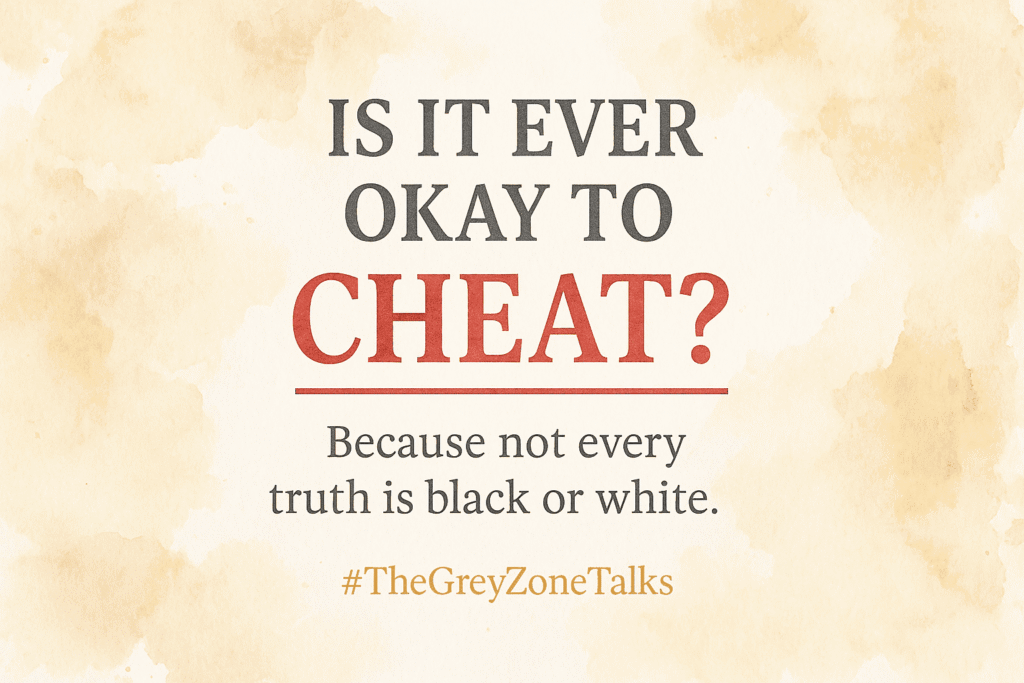We live in a world that loves certainty.
We want clear answers: right or wrong, good or bad, faithful or unfaithful. But love doesn’t always follow simple rules. It’s unpredictable, messy, and deeply human — which means it often lives in the space between moral absolutes.
“Cheating is wrong” — that’s what most of us have been told since childhood. But what happens when the heart doesn’t follow logic? What happens when love feels dead but comfort keeps you in the relationship? Or when loneliness becomes unbearable, even while lying beside someone every night?
This is where the conversation becomes uncomfortable — and real. Because in life, there are situations that don’t fit neatly into moral boxes. And that’s what The Grey Zone Talks is all about: understanding the space between black and white.
🧭 1. The Purist View: Cheating Is Never Okay
For some people, the debate around cheating doesn’t even exist. To them, it’s simple — cheating is wrong. There are no justifications, no hidden contexts, no shades of gray to consider. In their minds, it is one of the few moral absolutes in relationships: if you truly love someone, you stay faithful. If you are unhappy, you leave. You do not betray.
This way of thinking is deeply rooted in the belief that trust and loyalty are sacred pillars of love. Once you decide to share your life with someone, the promise you make — spoken or unspoken — becomes the foundation of that bond. Breaking that promise, even once, is enough to shatter everything built on it.
To the purist, cheating is not a mistake; it’s a choice.
It is an action taken knowingly, fully aware of its consequences.
They believe that no amount of loneliness, emotional neglect, or dissatisfaction can justify crossing that line. Because to them, integrity is measured not by how you act when things are easy, but by how you behave when you’re tempted to do wrong.
In this school of thought, infidelity is not only a physical act — it’s also emotional and spiritual.
It’s not just the body that betrays, but the heart and the conscience. Even a small act of secrecy — a hidden message, a flirtatious conversation, an emotional connection kept in the dark — counts as a form of betrayal. Once you begin dividing your attention and affection, you’ve already stepped away from honesty.
Purists often view cheating as an act that transforms love into deceit.
It is not simply about desire; it’s about dishonor. To them, the real tragedy isn’t the act itself, but the destruction of safety — the moment your partner no longer feels secure in your words or your promises.
That loss of safety, they argue, is harder to repair than any broken heart.
“If you can lie to the person who trusts you the most,” one purist might say, “then who else are you capable of lying to?”
This perspective values emotional integrity above all else. Even when relationships struggle — and they all do — the purist believes in the power of communication, counseling, or ending things respectfully. But deception? That, they say, is cowardice disguised as passion.
They see infidelity as a selfish act — one that prioritizes personal gratification over emotional responsibility.
When you cheat, you not only risk the relationship, but you also betray your own moral compass. You corrupt something pure and replace it with secrecy, guilt, and manipulation.
Many purists also emphasize that cheating doesn’t just break two hearts — it damages the concept of love itself. Once trust is broken, it’s never quite the same again. Even if forgiveness comes, something within the relationship changes permanently. There’s a hesitance, a quiet doubt, a small voice that whispers, “What if it happens again?”
And that’s what makes this view so unshakable.
It isn’t built on anger or revenge — it’s built on a deep belief in accountability. The purist doesn’t believe in bending the rules when emotions get messy. They believe in self-control, in ending one chapter before starting another, and in honoring the promises that hold two people together.
To them, cheating is never about love. It’s about ego.
And while people may make mistakes in a thousand different ways, betrayal is the one sin that love can rarely recover from.
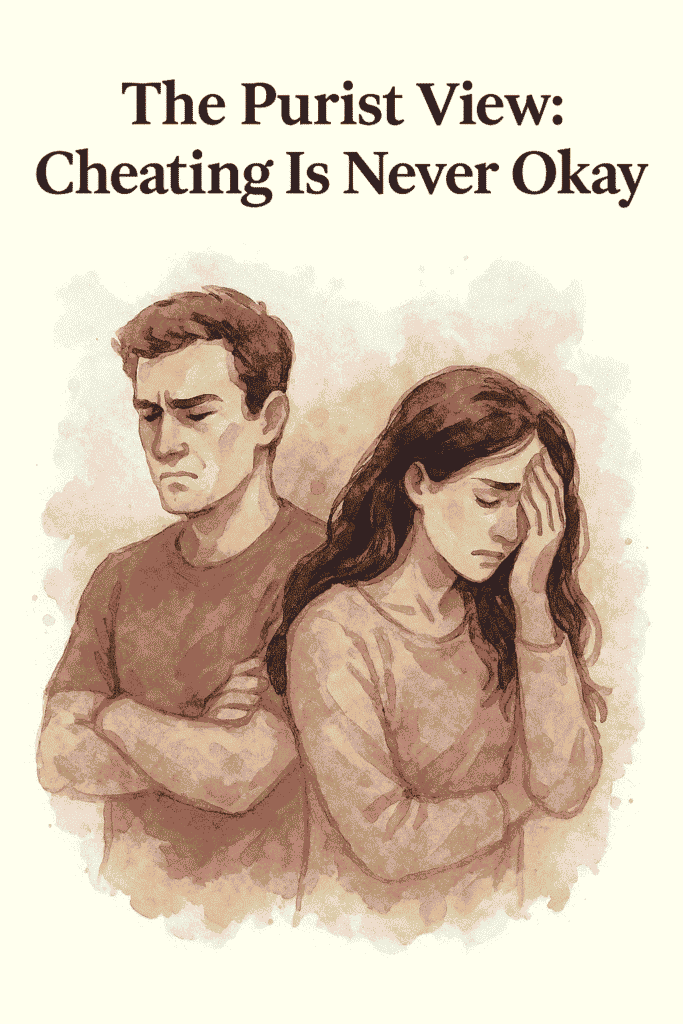
💭 2. The Contextual View: When Pain Meets Complexity
Not everyone sees cheating in absolute terms. Some people live — and love — in a space where emotions are too complex for simple rules. For them, infidelity cannot be judged without understanding the story behind it. They believe that every act of betrayal, no matter how hurtful, grows out of something deeper. It doesn’t happen in a vacuum. It’s often the symptom of a relationship that’s already ailing, long before the affair begins.
These individuals, often called contextualists, don’t condone cheating — but they refuse to condemn it blindly either. They believe relationships are living things, constantly evolving, and sometimes quietly breaking long before anyone admits it.
To them, cheating is rarely about lust. It’s about loneliness, neglect, and emotional disconnection. It’s what happens when two people stop talking, stop listening, or stop being seen by one another.
Imagine a partner who spends years trying to connect, only to be met with silence. They try to hold the relationship together — but over time, their effort becomes exhaustion. Their love becomes routine. Their needs become invisible. Then, one day, someone new listens. Someone notices. And suddenly, they feel alive again. That small flicker of attention, in a moment of weakness, becomes something they can’t easily let go of.
For the contextualist, this doesn’t excuse the betrayal — but it explains it.
They see cheating not as a moral collapse, but as a desperate, human response to emotional starvation. It’s not the act of someone evil, but of someone broken.
“People rarely cheat because they stop loving their partner,” they’d say.
“They cheat because they’ve stopped feeling loved themselves.”
From this perspective, infidelity isn’t always the cause of a relationship’s breakdown — it’s often the result of it.
It’s the final expression of years of neglect, silence, or unresolved pain. It’s a signal that something vital within the relationship has already died.
Contextualists also believe that morality looks different when filtered through suffering. They ask difficult questions that make others uncomfortable:
What if one partner has endured years of rejection or emotional abuse?
What if they’ve pleaded for affection and received only distance in return?
Is their act still the same as someone who cheats purely out of greed or impulse?
To them, every story has a context. And while that context doesn’t erase the pain caused, it invites compassion — not just judgment. It reminds us that good people can make bad decisions when they feel unheard, unseen, or unloved.
This view also exposes something many of us fear to admit: that relationships can fail quietly, even while both people are still there.
You can live in the same house, sleep in the same bed, share the same routines — and yet feel emotionally miles apart. In that distance, temptation finds its way in. Not because people plan it, but because they are starving for connection, even if it comes in the wrong form.
Contextualists see cheating as the result of neglect — a mirror held up to the cracks in the relationship.
They don’t celebrate it, but they believe it can be a wake-up call — a brutal reminder that love cannot survive without effort, attention, and empathy.
Of course, this view isn’t without controversy. Critics say it’s too forgiving, that it blurs moral boundaries and justifies pain.
But supporters argue that pretending every relationship follows the same rules is naïve. Human beings are emotional, flawed, and sometimes make choices out of desperation rather than cruelty. To understand that doesn’t mean to excuse it — it means to recognize the complexity of being human.
Because in truth, love doesn’t end when someone cheats. Often, that’s when people realize how fragile it always was.
The contextual view asks us to look deeper — to see the why, not just the what. It forces us to confront the uncomfortable truth that sometimes, the act of cheating doesn’t destroy the relationship — it exposes that it was already broken.
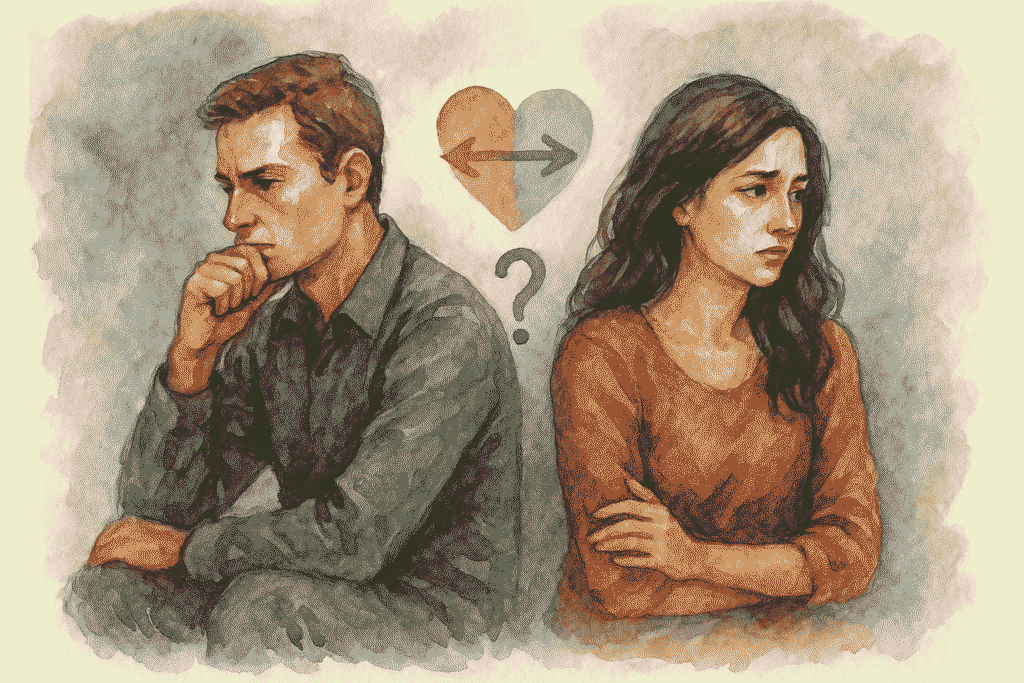
❤️🔥 3. The Emotional View: Cheating Without Touching
Cheating has always been associated with physical intimacy — secret encounters, late-night messages, and the unmistakable signs of betrayal. But in today’s world, infidelity has taken on a different form. It’s no longer confined to what happens behind closed doors. It now thrives in the spaces between texts, in emotional conversations, and in the silent comfort shared with someone who isn’t your partner. This is what we call emotional cheating — an affair of the heart that leaves no visible marks, yet cuts the deepest.
Emotional cheating often starts innocently. It begins with friendship, casual conversation, or the exchange of empathy that feels harmless at first. But slowly, that connection becomes something more. You start thinking about that person when you wake up. You find yourself waiting for their messages, confiding in them about things you no longer share with your partner. The emotional line begins to blur, and before you realize it, your heart is investing where it shouldn’t.
This kind of betrayal is subtler than physical cheating, but it can be more painful because it’s harder to define. There’s no concrete evidence — no lipstick stain or suspicious phone call. Instead, there’s a growing distance between two people who once shared everything. Conversations at home become shorter, eye contact becomes rarer, and emotional energy is slowly redirected elsewhere.
For many people, emotional infidelity feels more devastating than physical betrayal. Physical acts can sometimes be dismissed as momentary lapses in judgment. Emotional connection, however, implies something deeper — that your partner has formed a bond that used to belong to you alone. When your partner’s comfort, joy, and vulnerability are given to someone else, it feels as though you’ve been quietly replaced without ever being told.
In today’s digital world, this kind of cheating is more common than ever. Social media and constant communication make it easier to form connections that can spiral into emotional attachments. A simple “How are you?” can turn into hours of late-night chats, shared secrets, and emotional dependence. What starts as an innocent friendship can quickly become an emotional escape from the relationship.
Psychologists explain that emotional cheating often begins when one partner feels unfulfilled, unseen, or emotionally distant from the other. They start seeking validation or understanding outside the relationship because it feels easier than confronting the emptiness within it. And because emotional affairs don’t always involve physical intimacy, they’re easier for people to justify to themselves. They convince themselves they’re doing nothing wrong, all while investing more and more of their heart elsewhere.
“Cheating isn’t just about sleeping with someone else,” says one therapist. “It’s about giving away the part of yourself that was meant to stay within your relationship.”
What makes emotional cheating particularly dangerous is how naturally it develops. It doesn’t always start with attraction. Sometimes, it begins with empathy — someone who listens, understands, and makes you feel alive again. You don’t plan it, but it grows, quietly feeding on the emotional void that your partner no longer fills.
And because it doesn’t feel like a “real affair,” it often goes unnoticed for longer. By the time one partner realizes the other has emotionally checked out, the connection may already be too strong to undo. That’s why emotional cheating is often described as a slow, invisible drift rather than a sudden storm.
Recovering from this kind of infidelity is challenging because it breaks trust on a different level. Physical cheating might hurt the body; emotional cheating wounds the soul. It makes people question whether they were ever truly understood, or whether the love they had was replaced one message at a time.
Yet, the emotional view of cheating doesn’t come from a place of moral superiority. Instead, it asks us to reflect on the deeper needs behind every betrayal. Why do we seek emotional intimacy elsewhere? What does that say about what’s missing in our current relationships? And most importantly, how can we recognize emotional drift before it turns into disloyalty?
The truth is that human beings crave connection — not just physical, but emotional, intellectual, and spiritual. When those needs go unmet, the heart begins to wander in search of warmth. That doesn’t make it right, but it makes it understandable.
Ultimately, emotional cheating reminds us that love isn’t just about fidelity of the body; it’s about fidelity of the soul. Real loyalty means showing up emotionally, staying engaged even when life gets hard, and communicating when something feels missing instead of seeking solace elsewhere. Because sometimes, the most painful affairs are the ones that never involve a single touch — only silence, distance, and the slow disappearance of closeness.
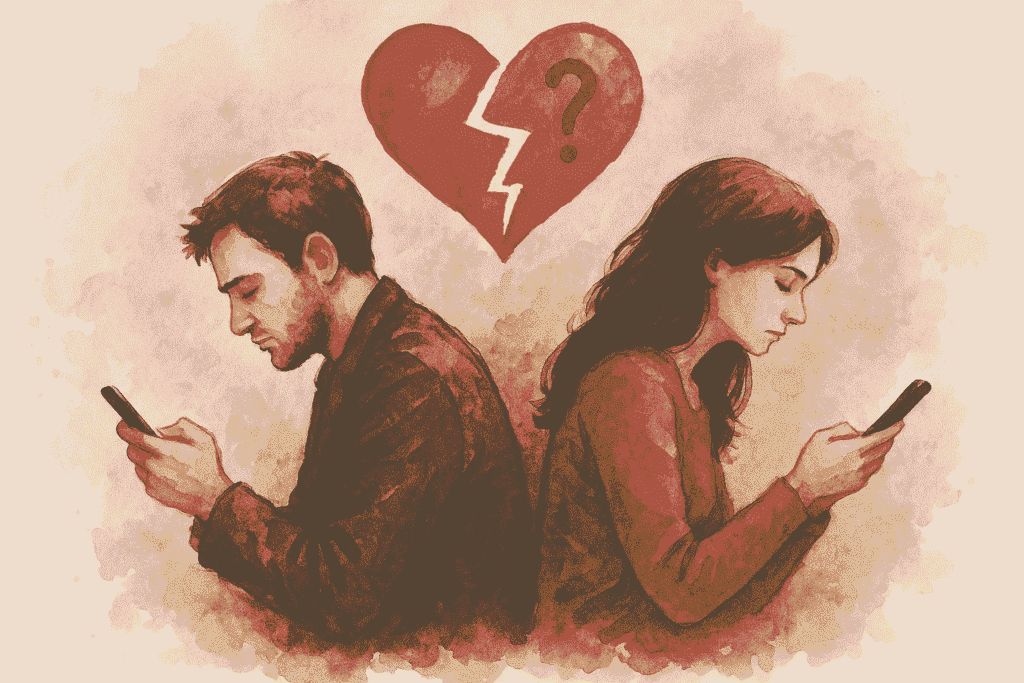
🔓 4. The Modern View: Redefining Fidelity
As the world changes, so do our ideas of love, commitment, and faithfulness. What used to be unthinkable in relationships fifty years ago is now openly discussed. The rise of social media, shifting cultural values, and a greater awareness of individual needs have pushed many people to question what fidelity really means. In this new landscape, the traditional idea of loyalty — one person, one partner, for life — is no longer seen as the only way to love.
The modern view of cheating is rooted in the belief that honesty matters more than exclusivity. People who share this perspective argue that relationships should evolve to reflect the complexity of human emotions. They believe that love can be deep, genuine, and still not confined to a single person forever. For them, the real betrayal isn’t physical or emotional connection with someone else — it’s the act of secrecy.
In this mindset, transparency becomes the ultimate measure of loyalty. As long as both partners are open and in agreement about what is acceptable, the boundaries of the relationship can be flexible. This is where concepts like open relationships, polyamory, and ethical non-monogamy come into play. These relationship models challenge the conventional notion that exclusivity is the only form of devotion.
In an open relationship, partners might agree that attraction to others is natural and not inherently wrong. Instead of suppressing those feelings, they communicate about them honestly. They believe that trust and freedom can coexist. In these arrangements, what matters most is emotional security and mutual respect. Both people must feel valued, chosen, and emotionally safe — even when connections with others exist.
For example, imagine a couple who agrees that physical intimacy outside their relationship is acceptable as long as it is honest and consensual. To outsiders, that may sound like a betrayal. But to them, it is simply an expression of truth — a recognition that love can exist without ownership. What would be unforgivable, however, is lying about it. Secrecy, in this view, is the real infidelity.
This modern approach doesn’t dismiss the pain that cheating causes. Instead, it questions whether the boundaries that define “cheating” are the same for everyone. It invites couples to design relationships that reflect their individual needs and shared values rather than following traditions blindly. It is less about rebellion and more about intentional love — choosing honesty, even when it’s uncomfortable.
Critics argue that this freedom can easily lead to confusion and insecurity. Not everyone is built to handle openness. Human emotions like jealousy, fear, and attachment are powerful, and managing them requires deep communication and emotional maturity. When handled carelessly, open relationships can collapse under the weight of comparison and unmet expectations.
Yet, for some people, this model of love feels more authentic. They view it as a rejection of hypocrisy — an acknowledgment that humans are complex, and that attraction doesn’t vanish just because someone has made a commitment. Instead of pretending those feelings don’t exist, they talk about them, set boundaries, and try to grow through them.
The modern view of fidelity challenges one of the most uncomfortable questions of all: is monogamy a moral standard, or simply a social expectation?
It suggests that there isn’t one universal definition of loyalty. For some, it means exclusivity; for others, it means honesty and transparency. What remains constant, however, is the need for respect, communication, and trust.
Whether you agree with this view or not, it’s difficult to ignore how much the idea of cheating has evolved. In a world that constantly encourages freedom, self-expression, and personal growth, people are rethinking what it means to be committed.
At its core, the modern view doesn’t celebrate cheating — it challenges the idea that love must look one way to be real. It calls for a redefinition of faithfulness, one that isn’t based on fear of losing someone, but on a shared commitment to truth. Because in the end, real loyalty isn’t about possession. It’s about honesty, respect, and the courage to love authentically — even when that love doesn’t fit into society’s traditional mold.
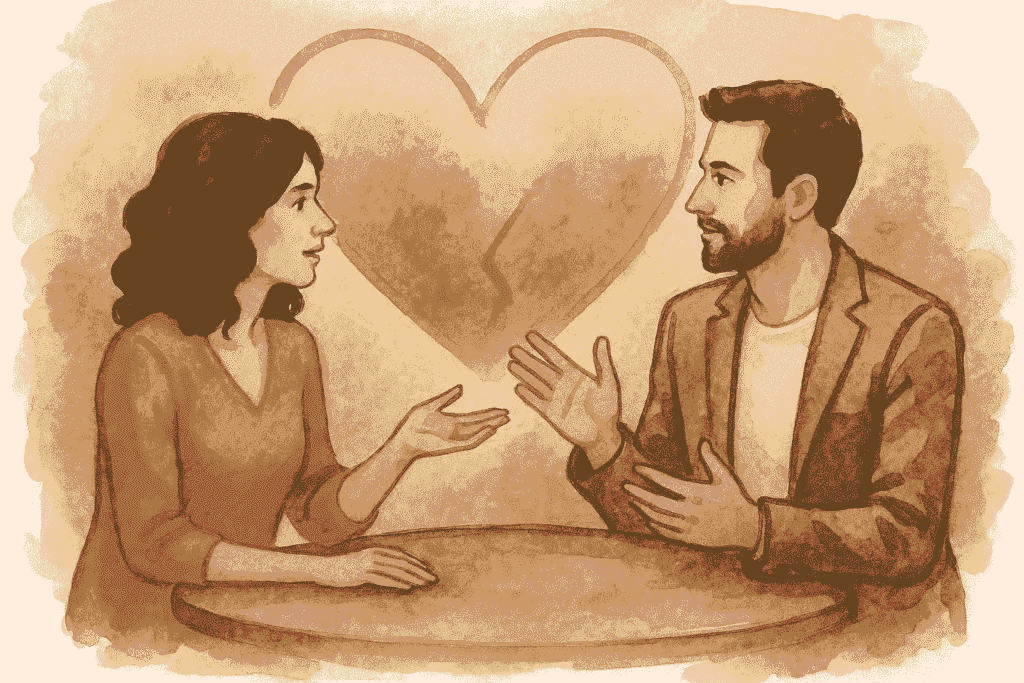
🧠 5. The Psychology of Cheating: Understanding the Why
When we strip away judgment, moral arguments, and anger, what’s left is the most uncomfortable question of all — why do people cheat? Why would someone risk everything for a few moments of excitement, validation, or escape? Why would a person betray the one they love, even when they know the pain it could cause?
The truth is that cheating is rarely about a single moment or an irresistible temptation. It often grows out of something far more complicated — a web of emotions, unmet needs, and personal struggles that people often don’t even understand themselves.
Psychologists describe infidelity not as one act, but as a reflection of inner conflict. It’s less about the affair itself and more about the emotional landscape that led to it. For some, cheating is an attempt to feel alive again. For others, it’s a way to reclaim control in a life that feels monotonous or restricted. And sometimes, it happens because people haven’t learned how to express their pain in healthier ways.
Cheating often begins quietly. A partner feels unseen, underappreciated, or emotionally distant. Instead of confronting those feelings, they suppress them — until one day, someone new notices them. That attention, however small, feels like sunlight after a long winter. It doesn’t excuse what comes next, but it explains why the pull can feel irresistible.
Human beings crave connection. We want to feel valued, desired, and understood. When that emotional connection fades within a relationship, even the strongest person can find themselves vulnerable. Some people cheat not because they want someone else, but because they want to rediscover themselves — the version that was once joyful, passionate, or full of life.
At a deeper psychological level, cheating can also be tied to identity. Life changes — careers, aging, parenthood — can cause people to question who they are and whether they’re still desirable or important. The attention from someone new can feel like proof that they still matter. It becomes less about sex and more about self-worth.
“Cheating isn’t always about falling out of love,” one therapist explained. “Sometimes it’s about falling out of love with yourself — and using someone else’s attention to feel whole again.”
For others, cheating may stem from unresolved emotional wounds or early experiences. People who grew up feeling neglected or unloved may unconsciously seek reassurance through external validation. The attention of someone new fills a void that has existed long before the relationship began.
There’s also the thrill factor — the forbidden nature of an affair. The secrecy, the adrenaline, the feeling of being wanted — all of it creates an intoxicating chemical rush. Neuropsychologists have found that the brain releases dopamine, the same pleasure chemical linked to addiction, during secret romantic or sexual encounters. That emotional high can be as addictive as any substance, which is why some people find themselves repeating the same pattern even when they know it’s destructive.
But perhaps the most overlooked reason people cheat is emotional avoidance. Some individuals use infidelity to distract themselves from pain they don’t want to face — the loneliness in their marriage, the fading spark, the fear of growing older, or the weight of unspoken disappointment. Cheating becomes a temporary escape, a way to avoid confronting the reality they’ve built.
The psychology of cheating, then, isn’t about villains and victims. It’s about the deep, often unspoken emotional needs that drive human behavior. People cheat for validation, for control, for novelty, for comfort, for attention, or for the illusion of freedom. And while none of those reasons make betrayal acceptable, they do make it understandable.
Understanding why people cheat doesn’t mean justifying it. It means acknowledging that behind every act of infidelity, there is a human being struggling with unmet needs, unresolved emotions, or a search for meaning. It’s about realizing that love alone is not always enough to protect people from their own insecurities, and that relationships — like people — require constant care and communication to stay alive.
When we look at cheating through this lens, it becomes less of a moral failure and more of a mirror. It reflects what is broken within us, what is missing between us, and what we sometimes refuse to admit: that love is fragile, that desire is unpredictable, and that being human means constantly balancing need with responsibility.

⚖️ 6. The Aftermath: When Betrayal Becomes a Mirror
The discovery of cheating feels like an earthquake — sudden, disorienting, and devastating. It shakes everything you thought was stable. For the person betrayed, the world stops making sense. Every memory, every “I love you,” every shared laugh becomes suspect. It’s not just the act of betrayal that hurts, but the realization that the relationship you trusted may not have been what you thought it was.
And yet, in the quiet aftermath, something else begins to happen. After the shouting, crying, and disbelief fade, there’s a moment of stillness — the moment when both people are forced to look in the mirror.
For the one who cheated, that mirror reflects guilt, shame, and confusion. They may question their own identity — How could I do this? What does this say about me? They often find themselves trapped between remorse and the fear that no amount of apology can fix what’s been broken. Some try to justify it; others are overwhelmed by self-hatred. Healing for them means confronting the uncomfortable truth that cheating didn’t just hurt someone else — it exposed something about themselves they were afraid to face.
For the person betrayed, the mirror looks different. It reflects loss, insecurity, and the struggle to rebuild trust — not just in their partner, but in themselves. Many begin to question everything. Was I not enough? Did I miss the signs? They replay every detail, looking for answers that might make sense of the pain. The truth, however, is that infidelity rarely has a single cause or an easy explanation.
In the days following betrayal, relationships often teeter between rage and reconciliation. Some couples separate immediately, unable to bear the weight of broken trust. Others stay, but not out of weakness — out of a desire to understand, to find closure, or to rebuild what was lost. For some, this becomes the start of a long, painful, but transformative journey.
Psychologists often describe cheating as a relationship trauma. Just like any wound, it leaves scars — but with the right care, it can also lead to deeper awareness. When two people choose to face the aftermath honestly, it can become a mirror that reveals not only what went wrong but also what was missing.
Some couples find that infidelity forces them to finally confront years of avoidance — the lack of intimacy, the growing resentment, the emotional walls. It pushes them into the kind of communication they had been avoiding. It strips away the illusions and forces vulnerability.
“Sometimes the affair isn’t the end of a relationship,” says one marriage therapist. “It’s the end of pretending that everything was fine.”
Rebuilding after betrayal is one of the hardest things a couple can attempt. It requires total transparency — every question answered, every hidden truth revealed. The partner who cheated must take full responsibility without defensiveness, and the betrayed partner must decide whether forgiveness is possible without losing self-respect.
Forgiveness in this context doesn’t mean forgetting. It means choosing to release the constant replay of pain so that healing can begin. But forgiveness isn’t owed — it’s earned through consistent actions, honesty, and empathy. It can take months, sometimes years, for trust to return, and even then, it never feels quite the same.
Interestingly, research shows that some relationships do survive cheating — not because the act is forgotten, but because both people grow from it. For some, the affair becomes a painful wake-up call that prompts personal and relational transformation. They learn to communicate better, to prioritize intimacy, to rebuild their connection from the ground up. Others realize that the damage runs too deep, and the healthiest choice is to part ways.
The aftermath of cheating teaches something essential about love: that relationships are fragile, and that repair requires courage. It also reveals that healing doesn’t always mean staying together. Sometimes, the greatest form of healing is acceptance — the ability to walk away with understanding instead of bitterness.
In the end, betrayal is a mirror that shows us who we really are — our limits, our fears, and our capacity to forgive or let go. Some will look into that mirror and see only pain. Others will see possibility — a chance to rebuild, either together or alone, with a deeper understanding of love’s complexity.
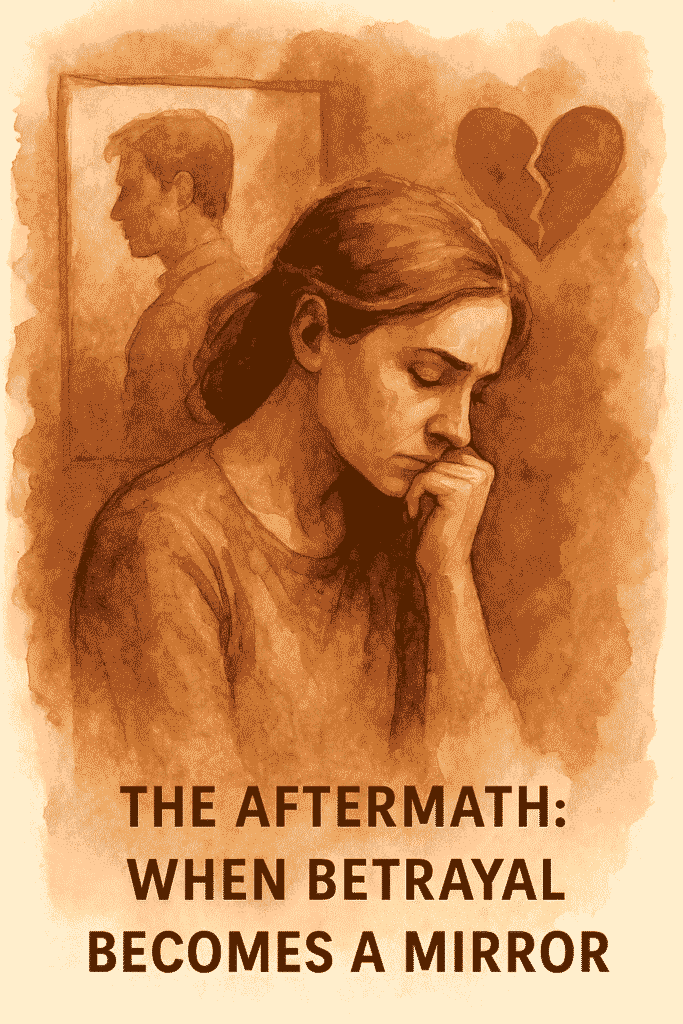
🌗 7. So… Is It Ever Okay to Cheat?
After everything — the heartbreak, the psychology, the moral debates, and the stories of people who have lived through it — the question remains: is it ever truly okay to cheat?
Most would say no. And perhaps they’re right. Cheating shatters trust, wounds deeply, and leaves scars that never fully fade. But to stop there would be too simple. The truth, much like love itself, is rarely black and white.
The act of cheating is wrong, but the reasons behind it are human. People cheat not always out of malice, but often out of longing, confusion, or pain. Some are trying to fill a void they can’t name. Others are reaching for something they lost — passion, validation, or even a sense of self. The act might be condemnable, but the emotions driving it come from a place every human has known: the desire to feel seen, loved, and alive.
Understanding that doesn’t mean forgiving easily, nor does it make betrayal acceptable. It simply means acknowledging that love exists within the fragile, complicated nature of being human. We are imperfect creatures trying to navigate connection, desire, and responsibility all at once. Sometimes we fail — sometimes spectacularly.
Cheating, at its core, forces us to confront what we fear most about love: that it is not indestructible. It reminds us that commitment isn’t just a promise made once, but a choice renewed daily. It reminds us that love cannot survive on autopilot, and that when communication fades, temptation finds space to grow.
If there’s one lesson to take from all of this, it’s that cheating is less about betrayal and more about awareness — awareness of what we need, what we lack, and how easily we can hurt the ones we love when we don’t confront those truths.
Perhaps the real question isn’t “Is it ever okay to cheat?” but “What went wrong before the cheating happened?” What needs were ignored? What conversations were avoided? What version of yourself did you stop being, and why?
In the grey zone of human emotion, cheating is both a tragedy and a mirror. It exposes everything — our weaknesses, our unmet needs, our hunger for connection, our capacity for forgiveness. It forces us to decide whether love is something we protect through honesty or something we lose through silence.
So no, it may never be okay to cheat. But it’s also not as simple as labeling one person the villain and the other the victim. It’s about two people who lost their way — one through action, and the other through absence.
And maybe that’s what The Grey Zone Talks is really about — the in-between. The space where we stop judging and start understanding. The space where we realize that love, like life, is never just one color.
It’s grey. And that’s where the truth often lives.
“Cheating is never right, but it is often real — a reflection of the parts of us that crave to be seen, heard, and loved. It’s not about excusing the wrong, but understanding the human behind it.”
And maybe that’s what The Grey Zone Talks is really about — the in-between. The space where we stop judging and start understanding. The space where we realize that love, like life, is never just one color.
It’s grey. And that’s where the truth often lives.




